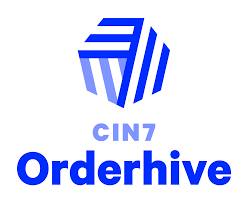💸 See if your business qualifies for a tax credit worth up to $26k per employee. 📞 Call Now: 855-979-9597
Best Ecommerce Inventory Management Software 2023
Data as of 12/14/22. Offers and availability may vary by location and are subject to change.
*Sales price: 50% off for the first 3 months. Must be paired with QuickBooks Online Essentials.
We are committed to sharing unbiased reviews. Some of the links on our site are from our partners who compensate us. Read our editorial guidelines and advertising disclosure.
If you sell your products exclusively online, your inventory needs may look a little different than your average brick-and-mortar business since you're looking for an ecommerce solution. We’ve scoured the web to find the top ecommerce management software solutions that cater to the unique order fulfillment and shipping needs of ecommerce stores.
Our top choice is Ordoro but we found four other platforms that are great choices too. Here’s what we came up with.
Best ecommerce inventory management software
- : Best overall
- : Most affordable
- : Best for wholesale
- : Best for easy online shopping
- : Best for growth
Best ecommerce management software options at a glance
For this article, we tried to narrow down the options by focusing on a few key features that ecommerce retailers would likely need. Specifically, we looked for inventory management software that allows you to sell on multiple online channels, supports dropshipping and Fulfillment By Amazon (FBA), and provides flexible shipping options.
Comparing the best ecommerce inventory platforms
Data as of 12/14/22. Offers and availability may vary by location and are subject to change.
*Sales price: 50% off for the first 3 months. Must be paired with QuickBooks Online Essentials.
By signing up I agree to the Terms of Use and Privacy Policy.
Ordoro: Best ecommerce inventory software
Data as of 12/14/22. Offers and availability may vary by location and are subject to change.
Ordoro is our top inventory management pick for ecommerce businesses because it can be customized to fit virtually any selling strategy.
For starters, the platform allows for multichannel selling so you can manage product listings for your Instagram, Facebook, Amazon, and Shopify channels (to name a few) in one convenient dashboard. You can even pick and choose which channels you want to update, giving you the ability to completely customize and brand each of your online stores.
Where Ordoro really shines, though, is in its niche selling features. When you connect Ordoro to your ecommerce platform and online store, you get the ability to limit the number of in-stock items your customers can see. This creates an illusion of scarcity that can drive your sales even higher. Ordoro also lets you strategically oversell your products, allowing you to continue taking in revenue—even while you're waiting for inventory to come in.
Zoho Inventory: Most affordable software option
Data as of 12/14/22. Offers and availability may vary by location and are subject to change.
Zoho Inventory is a great, easy-to-use inventory management software that organizes your inventory, keeps track of purchase orders, and invoices customers for you. It integrates into your business so you can focus on customer relationships and finding new products. With organized analytics and reports, you can see what’s flying off the shelves and make sure it’s in stock online.
The big downside with Zoho is that it limits the number of orders and shipping labels you can produce each month. It caps online and offline orders—as well as shipping labels— at 25,000 per month. This isn’t ideal for larger businesses that are dealing with a higher volume of orders per month. However, Zoho works best as an option for growing businesses to organize their products and jump into the ecommerce world.
With barcoding options and easy ways to organize products, Zoho Inventory keeps your stock accessible while helping you send it around the world. Ecommerce platform integrations with Amazon Marketplace, Shopify, and others enable you to sell everywhere.
QuickBooks Commerce: Best for online wholesale
Data as of 12/14/22. Offers and availability may vary by location and are subject to change.
*Sales price: 50% off for the first 3 months. Must be paired with QuickBooks Online Essentials.
QuickBooks Commerce came from TradeGecko, a program we’ve liked in the past, after it joined Intuit, which owns QuickBooks. And it’s still a great, affordable inventory management platform for just about any business. But where it really shines is in its tools for wholesalers.
For starters, QuickBooks Commerce integrates with ecommerce platforms, stores, and multiple marketplaces to help you sell your goods. It helps you manage inventory and orders for all of your sales channels through multichannel tracking—the software will let you know which orders came from B2B, B2C, and ecommerce.
One downside, though, is QuickBooks Commerce does have limitations on monthly sales order volume as well as SKU lists. So if you have a lot of inventory, you may not be able to store it all through QuickBooks. However, the limit is 30,000 orders and 20,000 SKUs, and most businesses are not reaching those heights early on.
QuickBooks Commerce is great for both new businesses and established ecommerce brands because of its price points and its features. It offers a lot at relatively low costs and integrates with QuickBooks to make your accounting easier down the road. Overall, the program is super helpful and one of the best out there for online wholesale and product management.
Cin7: Best for growing your business
Data as of 12/14/22. Offers and availability may vary by location and are subject to change.
From purchase orders to actual products and sales, Cin7 helps you work with clients and vendors to maintain good relationships and build your business. Multichannel tracking allows you to track services and goods bought and sold across warehouses and locations while shipping integrations make sure products get delivered on time. You can easily connect to ecommerce marketplaces and online sellers, bringing your inventory to wider audiences.
With a $299 per month starting price, Cin7 is not the most affordable option. However, it immediately brings in automations, multiple users, 24/7 support, and core inventory modules that will help you grow your business. We score it very highly because of what it offers business owners.
Going with Cin7 ensures that your business can keep going up. With third-party logistics and warehouse management, along with multiple B2B stores and automation workflows, Cin7 does the work for you so you can focus on sourcing the right products and helping customers find their next purchase.
Shopify: Best for easy online shopping
Data as of 12/14/22. Offers and availability may vary by location and are subject to change.
Working with Shopify’s order management program brings the ecommerce website to your business. As a small-business owner selling online, you always want to be sure that web store and ecommerce inventory is organized and easily accessible. Since Shopify is a web store first and inventory management program second, you can be sure that this program is designed for your ecommerce business.
Although it doesn’t include all the features we would want in an inventory management solution—like organizing vendor management and client relationships—it’s the perfect software for an ecommerce business. The price is good and comes with an online store while allowing you to expand to brick-and-mortar retail locations, pop-ups, and warehouses as your business grows.
Working with Shopify, you can accept payment and ship products directly from this software with a third-party integration. Essentially it works as shopping cart software: building off of your Shopify store, this inventory management tool keeps you organized behind the scenes.
Comparing the best ecommerce inventory platforms
Data as of 12/14/22. Offers and availability may vary by location and are subject to change.
Orderhive: Great for Shopify users
Data as of 12/14/22. Offers and availability may vary by location and are subject to change.
Orderhive is popular for small businesses and new startups because it offers inventory management, order fulfillment, and shipping features to all Shopify store owners. Upgrading to another plan brings on additional features like multi-warehouse support, third-party logistics coordination, and cost of goods sold (COGS) management.
Plus, you can sync every sales channel you use with your Orderhive account to manage all your sales in one place. Automations also allow you to program your inventory management system to complete all your everyday tasks automatically.
Square: Most affordable
Data as of 12/14/22. Offers and availability may vary by location and are subject to change.
Square supports multiple sales channels and lets you manage multiple warehouses with great options for customer loyalty. You can create customer profiles and track their purchases, helping them win points for their loyalty to your business and redeem them for rewards. With the ability to take pre-orders and back-orders, along with splitting and routing orders via nearby warehouses, you are ensuring that buyers get their purchases as quickly as possible. Square focuses on the customer experience and keeps them coming back.
The takeaway
Cin7, QuickBooks Commerce, and Shopify all offer quality platforms for ecommerce business owners, and Zoho Inventory offers a quality free option if you’re on a budget. But our favorite inventory management software for online stores is Ordoro. Its niche selling features and overall flexibility make it easy for ecommerce businesses to appeal to online buyers and track order fulfillment processes.
New to ecommerce? We can help. Check out our guide to starting a dropshipping business (if that’s the model you want to use) or visit our ranking of ecommerce website builders to get a jump start on building your online store.
Related Content
FAQ about ecommerce inventory management
Ecommerce inventory management is the same as a regular order management system in many respects. You order products from your suppliers, track delivery of those products, add received products to your store’s inventory level, and subtract sold products. The difference is ecommerce businesses have to worry about the logistics of actually delivering sold items to their buyers.
The key is to keep your inventory records organized. Some businesses manage to do this manually by tracking expenses, shipments, and stock levels in an Excel spreadsheet or on paper. However, as your business grows, this gets very difficult. If your company sells more than 20 items or does a high volume of sales, we strongly recommend signing up for one of the ecommerce software options we’ve listed above.
The best way to track your inventory is to be vigilant. Whether you’re using a manual technique (like Excel) or an inventory management software, be sure to record any and all inventory movements right away. Otherwise, you could easily forget about the order you just fulfilled or the new shipment you received today. Next thing you know, your inventory counts are way off and you’re short on vital products.
If you’re short on time and can’t log in each item, sale, or order individually, we recommend investing in barcode scanners to simplify your record keeping. To see which barcode scanners are best for your business, check out our article on the top five barcode scanners for businesses.
What is the best free inventory management software?
Honestly, the best free software depends on your business and your needs. But we have some suggestions: if you’re running an ecommerce business, we think the best free inventory management software is Zoho Inventory. If you’re running a traditional retail business, we think the best free options are Zoho Inventory and inFlow On-Premise. To see more no-cost options, check out our picks for the best free inventory management software.
Methodology
We searched through dozens of inventory management brands and ecommerce platforms to find the ones that work best for both. We looked for the best pricing, features, and integrations—and of course, platforms that work well with ecommerce.
Disclaimer
At Business.org, our research is meant to offer general product and service recommendations. We don't guarantee that our suggestions will work best for each individual or business, so consider your unique needs when choosing products and services.













